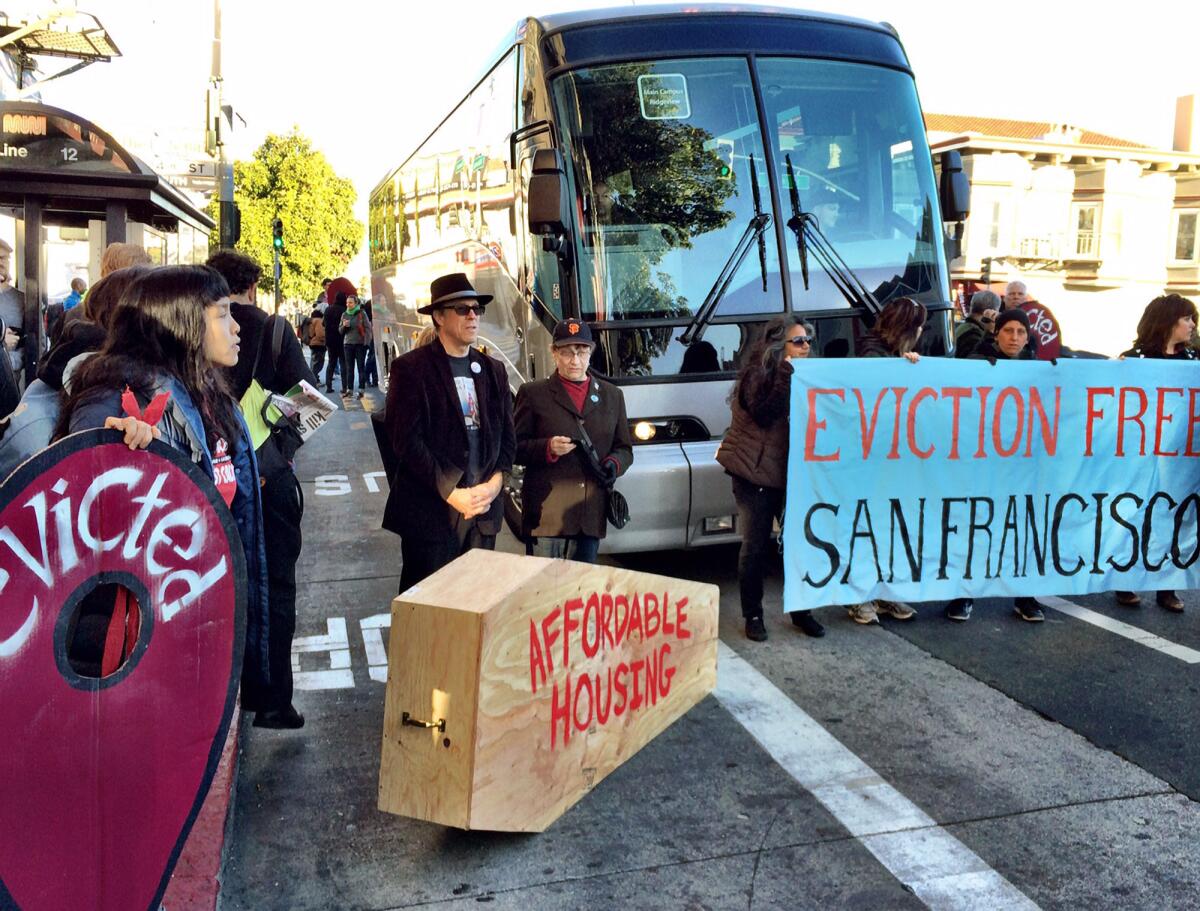Saving cities with a kinder, gentler approach to gentrification

- Share via
A couple of recent news articles about local approaches to housing issues offer a pretty stark contrast in smart policy and, well, not-so-smart policy.
In the smart category, cities such as Washington and Philadelphia have long struggled with trying to strike an economic balance in reviving high-poverty, high-crime neighborhoods. The usual progression is that a battered area attracts some adventurous and dedicated residents who buy property and work hard to improve their new neighborhoods. The efforts pay off, the area becomes a magnet for new residents and gentrification takes over — making it more expensive for those who lived there through the bad times to stay there during the good times.
As the New York Times reports, several cities have turned to what can best be described as a targeted Proposition 13 — offering longtime residents a property tax-hike cap, so as the neighborhood properties increase in value, they aren’t forced out because they can’t afford their suddenly high tax bills. From the article:
Housing experts say the arrival of newcomers to formerly working-class areas — from the Mission District in San Francisco to the Shaw neighborhood in Washington — is distinct from previous influxes over the past 30 years because new residents are now far more likely to choose to move into new condominiums or lofts instead of into existing housing, making the changes more disruptive.
“This latest wave of gentrification has happened very quickly, and cities are cognizant to keep from turning over entirely,” said Lisa Sturtevant, executive director of the Center for Housing Policy, a nonprofit research group. “And cities where property values are up and budgets are generally more stable have the wherewithal to provide tax breaks.”
Ms. Sturtevant said that given that many of the younger, newer arrivals do not necessarily plan to stay for long, cities are making a sensible economic choice.
There’s less personal investment and less incentive to stay, so cities are saying, ‘Let’s invest in the stayers,’ ” she said.
That’s a smart approach on another level too: Heterogeneous neighborhoods are healthier and more interesting neighborhoods. Though it’s important to note that this likely doesn’t do much for the longtime renters in a neighborhood, who, without rent control, will be faced with rising market rates.
Still, this is a good approach. Socioeconomic integration makes for more vibrant and diverse cities, places where those on all rungs of the economic ladder have proximity to a wide range of services and stores, not to mention jobs. It is a good counterweight to the kind of economic segregation that leads to ghettos.
On the other hand, we have Sacramento-area governments moving to loosen existing requirements that new housing projects include an affordable housing component. Developers have avoided building in those cities, so the cities are looking to make it easier — and more profitable — for the developers by letting them pay fees instead of building a percentage of affordable units. The fees in theory would be used to provide loans to other developers for affordable-housing projects.
But that’s just the local governments succumbing to pressure from the developers. If developers are balking at building affordable housing, the solution isn’t to let them buy themselves out of the requirement. That just exacerbates economic segregation and the evolution of “donut” metropolitan areas with high-poverty cores. Those cities really should look at other incentives, and at how their cities will evolve if they don’t find ways to diversify their developments.
ALSO:
An L.A. Marathon cycling tradition takes a spill
Why a disclaimer for ‘Noah,’ a movie based on a religious story, not history?
Follow Scott Martelle on Twitter @smartelle
Why a disclaimer for ‘Noah,’ a movie based on a religious story, not history?
More to Read
A cure for the common opinion
Get thought-provoking perspectives with our weekly newsletter.
You may occasionally receive promotional content from the Los Angeles Times.










